Twice in the past three years, Florida Atlantic ran away with the Conference USA East. The Owls' quest for three in four, however, will take place without head coach Lane Kiffin (and quite a bit of last year's defense). That could open up a fun division battle. FAU still has the offense, WKU has one of the best defenses in the Group of 5, Marshall is loaded with experience and upside, FIU's got the upside at least (if not the experience), Middle Tennessee might have a 3,000/1,000 quarterback, and Charlotte only needs a mediocre defense to contend.
There probably isn't a contender for the G5's New Year's Six bowl or anything, but it should be a race packed with nip-and-tuck battles. Hard to ask for more than that.
Jump to: Old Dominion | FIU | Charlotte | Middle Tennessee
Marshall | Florida Atlantic | Western Kentucky
Old Dominion
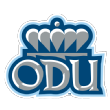
Head coach: Ricky Rahne (first year)
2019: 1-11 (0-8 in C-USA play) 125th in SP+
2020 projection: 4-8 (2-6), 120th
Five best returning players: DE Keion White, LB Lawrence Garner, DT Juwan Ross, WR Aaron Moore, CB Kaleb Ford-Dement
If this were English soccer, Old Dominion would be ripe for a billionaire's purchase. Second- or third-division club with prime talent acquisition opportunities and good facilities like the freshly renovated S.B. Ballard Stadium? A perfect situation for throwing some money around and building a big club out of a smaller one.
College football, however, offers no promotion-and-relegation system and less of a direct path for turning raw potential into high-level, big-league play. ODU tried to move up quickly all the same.
Under Bobby Wilder, the Monarchs won 38 games in their first four years of FCS existence, quickly moved up to FBS, and won 10 games in their third year in Conference USA. But things went awry when the goal shifted from rising to sustaining gains.
It started at quarterback. Freshman Steven Williams took over in 2017 and mostly struggled. Junior Blake LaRussa showed potential in 2018 but retired early to attend seminary school, as one does. In 2019, three QBs -- Stone Smartt, Messiah deWeaver and freshman Hayden Wolff -- combined to produce truly dreadful results. Wolff produced the best stats in a three-game audition, but "best" is relative. After wobbling to 5-7 and 4-8 records in 2017-18, ODU collapsed to 1-11 and 129th in offensive SP+, and Wilder was replaced by Ricky Rahne.
A former Cornell quarterback and longtime James Franklin assistant -- he was Franklin's QB coach at both Vanderbilt and Penn State, then moved up to offensive coordinator in 2018 -- Rahne made an immediate impression by signing probably the best recruiting class in school history. He also signed a Franklin-esque, family-and-loyalty staff -- offensive coordinator Kirk Campbell was an analyst at Penn State, and defensive coordinator Blake Seiler played for Kansas State when Franklin and Rahne were both there long ago.
We'll see how well, or how quickly, this translates to on-field improvement.
ODU had one of the conference's better run defenses last year and returns almost its entire front seven, including including stellar ends Keion White, Derek Wilder and Marcus Haynes. A sophomore- and junior-heavy secondary struggled to take advantage of all the gifts the front seven gave it last year, but at least it's a junior- and senior-heavy secondary now.
It's difficult to provide too much positive spin about the offense, but there is an intriguing base of sophomores to lean on: receivers Aaron Moore, Nigel Fitzgerald and Darius Savedge, running back Lala Davis, and part-RB/part-WR Blake Watson are exciting, and both starting tackles are sophomores too. The most important non-QB on the roster, however, might be senior receiver Eric Kumah, a Virginia Tech transfer and major potential efficiency weapon who played only four games last year due to injury.
ODU starts 2020 with four home games, and five of the six most winnable games come in the first half of the season. If the Monarchs start quickly, they could threaten for bowl eligibility into November. More likely is a return to the four- or five-win territory of 2017-18. Combined with strong recruiting, that's a good starting point.
Florida International
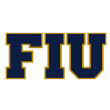
Head coach: Butch Davis (23-16, fourth year)
2019: 6-7 (3-5), 97th in SP+
2020 projection: 5-7 (3-5), 114th
Five best returning players: FS Rishard Dames, DE Alexy Jean-Baptiste, C Shane McGough, CB Richard Dames, LB Jamal Gates
Success is in the eye of the beholder, and you can see whatever you want to from Butch Davis' first three seasons at FIU.
First, the good: FIU won eight games for just the second time ever in 2017, then won nine for the first time in 2018. In three years, he has more than doubled the total number of bowls FIU attended, from two to five. Plus, his Golden Panthers beat Miami, 30-24, last fall.
That's a hell of a place to start, right? If the legendary former Miami coach, now 68, retired tomorrow, his career obit would say his FIU stint was a rousing success because of those things.
The success, though, has followed a recipe that's pretty hard to replicate. For starters, the Panthers went 8-2 in one-score games over Davis' first two years, which papered over a lot of deficiencies.
FIU has ranked just 102nd, 96th and 97th in SP+ over Davis' three years in charge. That's a clear upgrade over anything predecessor Ron Turner accomplished, but it doesn't necessarily match the record. And a year after the good bounces regressed to the mean and FIU fell to 6-7, both a disappointing offense and sterling special-teams unit are starting over.
The 2020 season is when we'll find out just how well Davis has been recruiting. There are solid-looking three-star options to fill basically every hole Davis has to fill, but now those guys have to shine, as do a few transfers, like former Georgia receiver JJ Holloman and former Boise State linebacker Tyson Maeva.
There's no transfer at quarterback, though, at least not yet. James Morgan's replacement will likely be either athletic junior Kaylan Wiggins or well-touted redshirt freshman Stone Norton. In support, wideout Bryce Singleton (injured in 2019) and tight end Sterling Palmer have shown flashes, and sophomore running back Lexington Joseph could become a viable option with senior D'Vonte Price.
The defense was driven by a strong secondary last year. Safety Rishard Dames is one of C-USA's best, and twin brother Richard Dames is solid at either corner or safety. But three other regulars depart, meaning there will be openings for recent star recruits. The front seven returns just about everyone but loses its two most disruptive options in tackle Teair Tart and linebacker Sage Lewis. Maeva could add some pop, and end Alexy Jean-Baptiste (another former transfer) gives the Panthers at least one decent pass-rusher.
Early road trips will define the season. SP+ projects near-tossups in four consecutive games against ODU, Liberty, MTSU and Charlotte, and if FIU can rediscover some of its close-game karma with a new QB, a great season could unfold. It'll take some tight wins, though -- SP+ suggests the Panthers will again be only a borderline bowl team -- and that's a hard thing to promise with a new signal-caller. The potential here is obvious, but Davis' early success may have given us a false impression about the Panthers' overall trajectory.
Charlotte
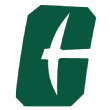
Head coach: Will Healy (7-6, second year)
2019: 7-6 (5-3) 95th in SP+
2020 projection: 6-6 (4-4), 107th
Five best returning players: QB Chris Reynolds, WR Victor Tucker, LB Henry Segura, DE Markees Watts, WR Tyler Ringwood
The tl;dr version, in case you're late to the Will Healy Chronicles:
Healy snared the Austin Peay head-coaching job at the age of 30, in part because no one else wanted it. The Governors were in the middle of what would become a 29-game losing streak, but they went 8-4 in his second season and nearly made the FCS playoffs.
He provided another energy boost at Charlotte. Through four years in FBS, the 49ers were averaging just three wins per season with an average SP+ ranking of 124.8, but after a 2-5 start in his debut campaign, they rode five straight wins to their first bowl bid. And oh, did they celebrate.
Still only 35, Healy is a rising star, a Dabo Swinney-style delegator, motivator, recruiter and brand-builder. His career trajectory is an upward slope, and it seems likely that if or when he leaves Charlotte, he'll leave a better program than the one he found.
Healy did lose offensive coordinator and line coach Alex Atkins, another potential rising star, to Florida State. Atkins was at the helm of a ground-heavy attack that surged to 55th in offensive SP+ thanks to the tandem of quarterback Chris Reynolds, thousand-yard rusher Benny LeMay and a line that included all-conference left tackle Cameron Clark.
LeMay, Clark and two other starting linemen are gone, though Healy brought in NIU transfer Tre Harbison (1,021 yards in 2019), and the line does still feature five players with starting experience. Reynolds himself is perfect for the Healy offense, and he's got a couple of big-play wideouts in Victor Tucker and Cameron Dollar. Still, it's hard to sustain your gains after a huge surge like this.
The bar is a lot lower for a defense that ranked 107th in defensive SP+ last season. The 49ers defended the pass more aggressively than most of their C-USA peers -- ninth in sack rate, 41st in passing success rate allowed -- but the risks were sometimes punished with big plays, and a solid pass defense makes more of a difference when the run D isn't a total sieve.
Both end Tyriq Harris and safety Ben DeLuca missed most or all of 2019 due to injury, and both are scheduled to return for second-takes at their senior seasons. They could be key to replacing two valuable contributors: end Alex Harrington (12 sacks) and safety Marquavis Gibbs.
Healy signed a few JUCO defenders, and there are seniors at each level of the defense. But improvement in 2020 could be driven by youngsters like linebacker Prince Bemah, safety Jonnie Pitman or lineman Bryan Wallace, all of whom did quite a bit of damage in backup roles. Also: redshirt freshman corner Trey Bly is the son of legendary corner Dre' Bly, which, enough said.
SP+ gives the 49ers a 58% chance of reaching bowl eligibility again, but that's with the D projected to fall to 123rd. Make that defense 90th or 100th, and they become dark-horse East contenders.
Middle Tennessee
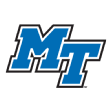
Head coach: Rick Stockstill (91-86, 15th year)
2019: 4-8 (3-5), 110th in SP+
2020 projection: 6-6 (4-4) 106th
Five best returning players: QB Asher O'Hara, LT Will Gilchrist, LB DQ Thomas, WR Jimmy Marshall, FS Reed Blankenship
Conference USA, like pretty much every Group of 5 conference, serves as a way station of sorts for coaches. You're either moving up the ladder or down it, and either way you probably aren't going to stay very long. If you're a fifth-year senior in 2020, only three C-USA head coaches were in place during your recruitment: Louisiana Tech's Skip Holtz, Marshall's Doc Holliday and Middle Tennessee's Rick Stockstill.
Stockstill basically has faculty tenure at this point in Murfreesboro. After a long stint as a Clemson assistant, he has, in this transient profession, worked at just two schools for 28 of the past 31 years.
After surging to 10-3 in 2009, Stockstill's Blue Raiders plummeted to 2-10 in 2011, but he survived with his job intact and established an impressive level of consistency. The Blue Raiders were bowl-eligible every year from 2012-18 and lost either five or six games for six of those seven years.
He's got another recovery to undertake in 2020, though. For the first time since 2011's 10-loss disaster, Middle Tennessee finished below .500 last fall, due primarily to a defense that plummeted to 117th in defensive SP+, their worst ranking since 2011.
Stockstill has made a lot of impressive hires through the years, and for a while it appeared that defensive coordinator Scott Shafer was one of the best yet. The former Syracuse head coach and Michigan DC produced defensive SP+ rankings of 62nd in 2017 and 68th in 2018 before last year's cliff-dive.
A few factors came together to make last year so tough defensively:
1. The injuries and shuffling were nonstop. The secondary, easily the biggest concern heading into the season, was hit particularly hard. Star safety Reed Blankenship missed five games, and about eight cornerbacks took their turns in the lineup. That's never going to work out well.
2. The pass rush vanished. Middle Tennessee ranked 130th, dead last, in sack rate, and the typically aggressive Shafer had to scale things back and deploy some bend-don't-break tactics.
The injury bug might be kinder, but there's quite a bit of new turnover to deal with -- about seven starters are gone. Blankenship and linebacker DQ Thomas (12 TFLs, 16 run stuffs) are back, at least, and most of last year's revolving-door corners return as well. But depth and pass-rushing will remain massive concerns.
Luckily the defense won't have to make just a ton of stops. Thanks to quarterback Asher O'Hara (2,616 passing yards, 1,186 non-sack rushing yards), running back transfers Martell Pettaway (WVU) and Amir Rasul (Florida State), a wonderfully deep receiving corps, and a line with four returning starters, the Blue Raiders have one of the most proven offenses in the country. A top-50 ranking in offensive SP+ is possible for coordinator Tony Franklin's group if the right guys stay healthy.
The schedule features seven opponents projected 107th or worse, and SP+ offers Middle Tennessee a 58% chance of bowl eligibility. But anything beyond 6-7 wins will depend on Shafer figuring out some answers for his suddenly tenuous defense.
Marshall
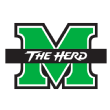
Head coach: Doc Holliday (78-51, 11th year)
2019: 8-5 (6-2), 70th in SP+
2020 projection: 7-5 (5-3), 77th
Five best returning players: RG Cain Madden, DE Darius Hodge, RB Brenden Knox, QB Isaiah Green, LB Tavante Beckett
Marshall is a proud offerer of second chances, bringing in more partial- and academic non-qualifiers than just about anyone in FBS. Taking on extra academic risk adds obvious potential upside. Former Thundering Herd stars like Vinny Curry, after all, were non-qualifiers. But it also makes roster management and talent acquisition trickier, and roster-balance issues can take a while to rectify.
Doc Holliday engineered a four-year run of improvement, peaking with a 13-1 campaign and top-25 finish in 2014. But the offense collapsed in 2015, and the defense followed suit a year later during a 3-9 campaign. Holliday was given space to rebuild, though, and he's paid the faith off with 25 wins in three years. From a low of 110th, Marshall was back up to 70th last year.
If the Herd have another big rise in them under Holliday, we'll probably start to figure that out this year. A defense that has been top-60 in defensive SP+ for three straight years returns excellent depth and experience and might get a boost from a couple of transfers (Delaware State star linebacker Brian Cavicante and former WVU safety Derrek Pitts, who was hurt for most of 2019). But the offense, inconsistent for most of this recent rise, has experience and perceivable upside in every unit.
Holliday handed the reins of his offense to veteran coordinator Tim Cramsey a couple of years ago; you could politely call Cramsey's approach old-school -- Marshall ran as much as possible, forced opponents to gang tackle constantly, and threw to tight ends a lot. This occasionally set up deep-ball opportunities to Z-receivers Broc Thompson and Willie Johnson (combined: 21.3 yards per catch), but it was held back by mediocrity in the run game. Those passes to the tight ends weren't all that efficient either (10.8 yards per catch).
With quarterback Isaiah Green, leading rusher Brenden Knox, Thompson/Johnson, tight end Xavier Gaines, and five senior linemen back, we should see at least the best possible version of Cramsey's offense, wherever that ceiling is.
Defensively, the upside is higher. Coordinator Brad Lambert didn't have the most disruptive attack in the world, but it was organized and pursued well as a collective and returns its best pass-rusher (end Darius Hodge) and most of last year's secondary.
Holliday is bringing in four JUCOs, plus Cavicante (17 TFLs for DSU) and Pitts. This appears to be a pretty trustworthy unit. Special teams might be, too, if the Herd have a kicker to replace the high-level Justin Rohrwasser.
This is not the most tactically interesting team in the world, but it could win big with sheer athleticism and experience. The Herd could end up starting as many as 20-21 juniors and seniors, and that extra seasoning could make a huge difference against a schedule loaded with relative tossups. They start the year with three of those tossups (at ECU, Pitt, at Ohio), and the results there will define the trajectory, and ceiling, of the season.
Florida Atlantic
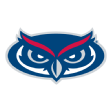
Head coach: Willie Taggart (first year)
2019: 11-3 (7-1), 40th in SP+
2020 projection: 7-5 (5-3), 70th
Five best returning players: RB Malcolm Davidson, QB Chris Robison, LB Akileis Leroy, LG Desmond Noel, DE Leighton McCarthy
When you are fired from a power conference head-coaching job, it seems you have a few different options for rehabbing your career and its trajectory.
1. Go back to being a coordinator. Think Joe Moorhead or Chad Morris.
2. Drop down a level and take a Group of 5 head-coaching job. Jim McElwain, for instance.
3. Take a TV job. This doesn't work for many, but Jim Mora's following this path at the moment.
4. Somehow land an NFL job. Granted, this one has thus far only worked for Kliff Kingsbury.
Lane Kiffin followed steps 1 and 2 following his dismissal from USC, landing at FAU after a few years as Alabama's offensive coordinator. The arrangement worked beautifully: the Owls won 11 games and Conference USA titles in both 2017 and 2019. Rehabilitation complete, Kiffin took the Ole Miss job. FAU replaced him with another Category 2 coach: former Florida State head man Willie Taggart.
After completing a USF turnaround with a 10-2 campaign in 2016, Taggart spent a year at Oregon before landing his "dream job" at FSU, where he was fired just 21 games (and nine wins) into his tenure. His first FAU team will require some defensive retooling, but Kiffin left him quarterback Chris Robison, running back Malcolm Davidson and a loaded offense.
The Owls do have to replace a couple of offensive cheat codes in tight end (and Mackey Award winner) Harrison Bryant and slot Deangelo Antoine. But Taggart's welcoming four P5 transfers to the unit alongside senior stalwarts like John Mitchell and Willie Wright.
The line in front of Robison has to replace a pair of all-conference performers, but four experienced players return. And honestly, I'm not sure how much help Davidson needs. Despite limping in and out of the lineup with injury and getting double-digit carries in only five games, Davidson averaged an explosive 7 yards per carry. There are lots of experienced options behind him, too, including former Alabama blue-chipper BJ Emmons.
Taggart wooed Jim Leavitt, his former Oregon defensive coordinator, to Boca. That's both a big, and important, get -- Leavitt will inherit a unit that has recruiting rankings as strong as anyone's in C-USA, but five of the top six linemen, the top two linebackers, and three secondary starters all depart. The known entities: senior end Leighton McCarthy, safety Zyon Gilbert and corner Meiko Dotson. And a solid pair of legs (punter Matt Hayball, kickoffs guy Aaron Shahriari) should make sure the defense is dealing with good field position.
Taggart inherits a good situation, but by nature replacing a school's most successful ever hire tends to lead to regression. That makes 2020 an interesting opportunity: FAU should stumble from an SP+ perspective, but after a Week 1 trip to Minnesota the last 11 games are all winnable. Even if they don't prevail in every tossup, winning 8-10 games and maybe stealing another C-USA East title in a transition year, then signing another strong class, would set the Owls up nicely.
Western Kentucky
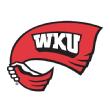
Head coach: Tyson Helton (9-4, second year)
2019: 9-4 (6-2), 59th in SP+
2020 projection: 8-4 (6-2), 57th
Five best returning players: DE DeAngelo Malone, LB Kyle Bailey, WR Jahcour Pearson, RG Jordan Meredith, DE Juwuan Jones
Sometimes a team can throw you off the scent a bit. Western Kentucky began Tyson Helton's tenure with a loss to Central Arkansas, then lost by 17 to a Louisville team we didn't completely know what to think of yet. Helton inherited from Mike Sanford a team that had plummeted to 3-9 and 113th in SP+, and while I had predicted the Hilltoppers might be capable of a run at bowl eligibility, this was starting to pretty clearly resemble a Year Zero situation.
A funny thing happened after that, though: WKU started defending like crazy. Winning, too. 20-13 over eventual C-USA West champ UAB. 17-8 over Army. 30-14 over Charlotte. After a two-game losing streak to Marshall (via last-second field goal) and FAU, they won their last four games of the year, too. They destroyed Arkansas, 45-19 -- with a former Arkansas QB (Ty Storey) leading the way, no less -- and finished a nine-win season with a First Responder Bowl win over WMU.
The best part: this defense, so good over the last 2-3 months that it finished 31st in defensive SP+, is scheduled to return almost everyone -- four of its top five linemen, every linebacker (plus Tennessee transfer Will Ignont and perhaps 2018 havoc-maker Eli Brown, injured last fall), and nearly every DB. And coordinator Clayton White is back to lead them.
Few teams were better than WKU at forcing passing downs. The Hilltoppers ranked 15th in standard downs success rate, fourth in open-play situations (snaps between the opponent's 10 and their 30). And when you also rank second in third-and-long success rate, well, that's a pretty good combination. Ends DeAngelo Malone and Juwuan Jones are havoc machines, and the defensive backbone -- tackles, middle LBs and safeties -- might be the best in the league. They're deep at cornerback, too, but Dionté Ruffin and Roger Cray are particularly good.
The offense had its moments, but it was dragged down by a lack of big-play ability and serious red zone issues -- they were 118th in points per scoring opportunity (first downs inside the opponent's 40). And now Storey, 1,100-yard receiver Lucky Jackson and all-conference tackle Miles Pate are all gone.
There are still solid efficiency options -- quick-strike receivers Jahcour Pearson and Jacquez Sloan, high-ceiling tight end Joshua Simon, and running back Gaej Walker -- but there is at least experience at QB. Steven Duncan began 2019 as the starter but struggled, then suffered a season-ending injury. He should be back, and he could get a nice challenge from sophomore and former star recruit Kevaris Thomas. Helton could elect to bring another Storey-like grad transfer, too.
One thing you notice pretty quickly looking at WKU's two-deep: It's dramatically experienced. The Hilltoppers could start as many as 17-18 seniors this year, which both makes them proven entities and adds a bit of win-now pressure. On paper, this is potentially the best team in the league, but they better win the title now before some retooling unfolds in 2021.
